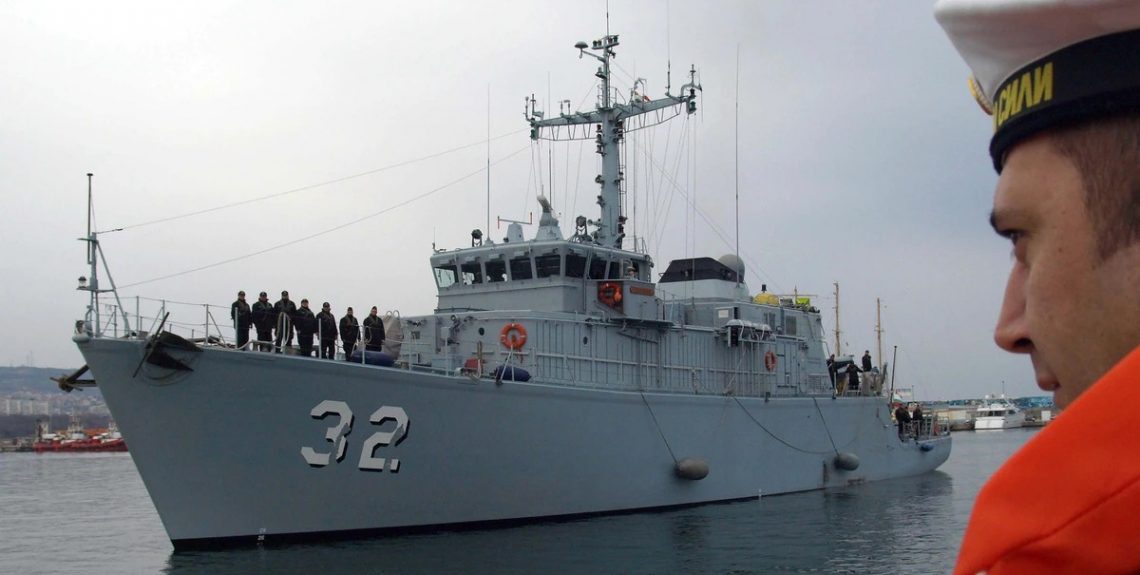1. Security situation
The Black Sea region (BSR) is an important crossroads connecting Europe with the Caucasus, the Caspian Sea and Asia, with a relevant role in European and Euro-Atlantic security and stability. There is a complex historic legacy of fierce confrontation and struggle for domination between the Russian and Ottoman empires over the BSR. Currently this results in attempts to return to a policy of carving zones of influence which is a matter of serious concern.
The BSR is increasingly becoming a juncture of clashing interests in times when we face the worst security situation in NATO and the EU periphery since the end of the Cold War. The security environment has seriously deteriorated and we continue to witness negative dynamics.
Protracted conflicts in the post-Soviet space serve as an amplifier of Russia’s regional influence. They severely fragment security and hamper efforts to find lasting solutions. The limited coastal access of Georgia and Ukraine hinders not only security but the development of a comprehensive approach to find a common ground among stakeholders.
The accelerated modernization of the Russian Black Sea Fleet and the militarization of Crimea increase the risk to the smaller Black Sea states, that without external support would not have the necessary resources and capabilities to resist regional hegemony ambitions.
The ground and sea deployment of modern radars, modern air defence systems and coast-based military capabilities on the Russian side practically expanded the area of the so-called “A2 / AD” over the entire Black Sea and beyond. Russia’s modernization plans provide for almost complete rearmament of the Black Sea Fleet in the next 10 years.
The geopolitical importance of the BSR is growing also as a strategic transport and energy corridor.
The BSR is also vulnerable to hybrid and terrorist threats, and potential migration waves that complicate the security situation.
In this complex situation, Bulgaria needs increased Allied support to manage the risks arising from the security environment in the BSR.
2. NATO activities
The possibilities for supporting the Black Sea countries with naval forces from Allied countries are limited by the Convention on the Black Sea Straits, signed in Montreux (1936). Turkey as a territorial host of the Black Sea Straits places special emphasis on its strict implementation, defining this as a fundamental principle of its regional approach to security. Creative approaches can be useful in increasing Alliance presence in the Black Sea. This includes regular patrols and options to extend the length of time for which non–Black Sea countries operate in the sea. However, the possible impact of such measures seems to be limited at this juncture. There are also conflicting opinions on the usefulness of an eventual opening of the Montreux Convention for negotiations.
At its Warsaw Summit NATO highlighted the strategic importance of the BSR. A decision was taken to implement Measures for a Tailored Forward Presence in Bulgaria and Romania. Since 2014, both NATO, through its naval groups (SNMG – Standing NATO Maritime Groups), and individual Allies, have strengthened their naval presence.
In 2016 Bulgaria proposed to transfer the coordination maritime function for NATO situational awareness in the Black Sea from NATO Maritime Command in Northwood, UK (MARCOM) to a Regional Naval Coordination Presence (RMCP) in Varna. In December 2020, NATO welcomed Bulgaria’s proposal, but discussions on the issue and decision-making are still pending. The proposal meets broad support, but Turkey maintains its reserved position in the context of its overall Black Sea policy focussed on limiting external influence and strengthening its position in BSR including through its national operation, Black Sea Harmony in which Russia also participates.
3. Regional security cooperation formats
The Document on Confidence and Security Building Measures in the Black Sea Naval Area
The document is politically binding and aims to develop cooperation through the exchange of information, dialogue and discussion of issues of mutual interest between the navies of the six countries, namely Bulgaria, Georgia, Romania, Russia, Turkey and Ukraine, as well as to strengthen trust and security in the Black Sea region.
Although the Confidence and Security Building Measures in the Black Sea naval area continue to have potential, the challenging circumstances in the region continue to make the activities under Chapters III and V [Invitations to Naval Bases and Confidence Annual Naval Exercises] inapplicable.
Lasting political solutions of all conflicts in the region, based on territorial integrity, independence and sovereignty within internationally recognized borders, would allow the full implementation of the Document.
Naval Cooperation Task Force (BLACKSEAFOR)
The aim of BLACKSEAFOR is essentially to achieve common goals and build trust between the six Black Sea countries through joint activities. However, this cooperation format suffered a heavy blow with the conflict and aggression in Georgia in 2008.
In the period 2008-2014, the format was continued with the hope of a gradual return of confidence. After the crisis in Ukraine, the group’s activities are virtually frozen. The next countries in alphabetical order – Georgia and Romania – refused to take over the rotating presidency in 2015 and 2016, respectively. Ukraine insists on dissolving the group and forming a new one without Russia’s participation.
The future of the BLACKSEAFOR initiative will depend on the normalization of the situation in the BSR and the readiness of participating states to restore the spirit of cooperation in the region.
Summary
The Bulgarian approach to the BSR can be summarized as follows:
The BSR should not be isolated or left vulnerable to clashes for dominance and spheres of influence. It requires continued attention and more proactive approach both of NATO and the EU including energy security and overall infrastructural and economic development. Guaranteeing freedom of navigation is of paramount importance. Exercising restraint is also a key for avoiding further escalation.
Maritime security in the Black Sea is an area of vital concern that directly affects European security. Increased Russian assertiveness and military build-up in the Black Sea region are a serious problem.
Bulgaria supports a continuous NATO focus on the Black Sea, a strong presence aimed at deterrence and prevention of conflicts in the region.
Looking across the Black Sea Region, the Alliance needs also to uphold the Euro-Atlantic perspective for Georgia and Ukraine.
Bulgaria strives to find a balance between national responsibilities and ownership and its allied obligations while keeping open the possibility for stronger involvement of NATO and EU in the BSR.
An important first step towards improving the security situation in the region is strictly abiding to purposes and principles of international law.
Lubomir Ivanov
Bulgarian Permanent Representative to FAO, Ambassador Ivanov has been Chairman of the FAO Committee on Constitutional and Legal Matters between 2015 and 2017. He has a long-standing career in international and Euro-Atlantic organisations. Among other high-level posts, Ivanov served as Permanent Representative of Bulgaria to NATO from 2004 to 2009. Since May 2017, Ambassador Ivanov is Ambassador-at-Large on security matters.
























